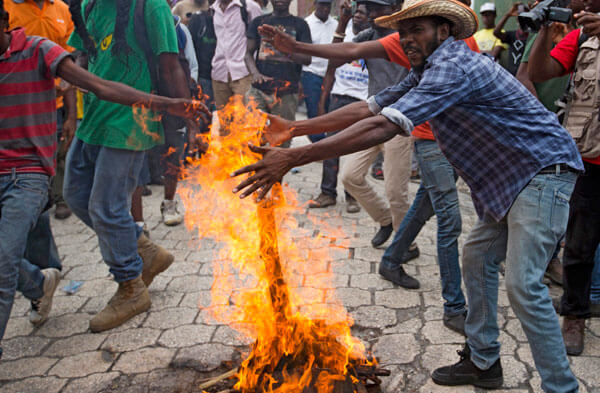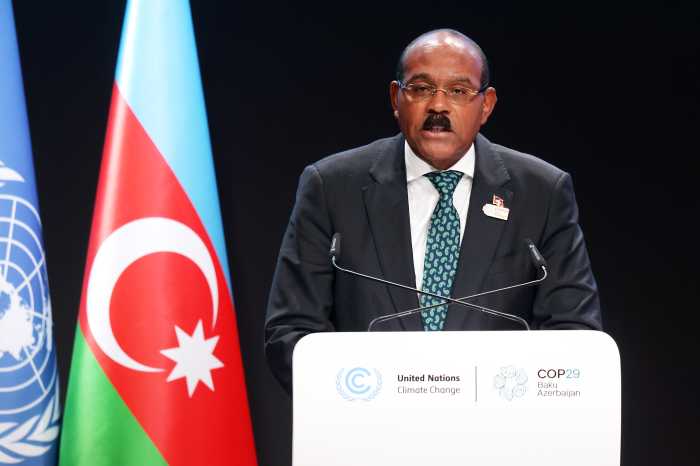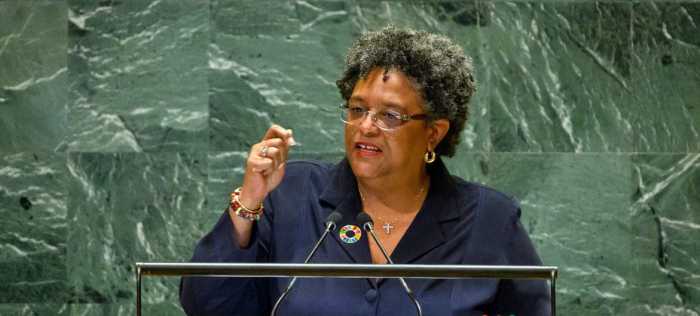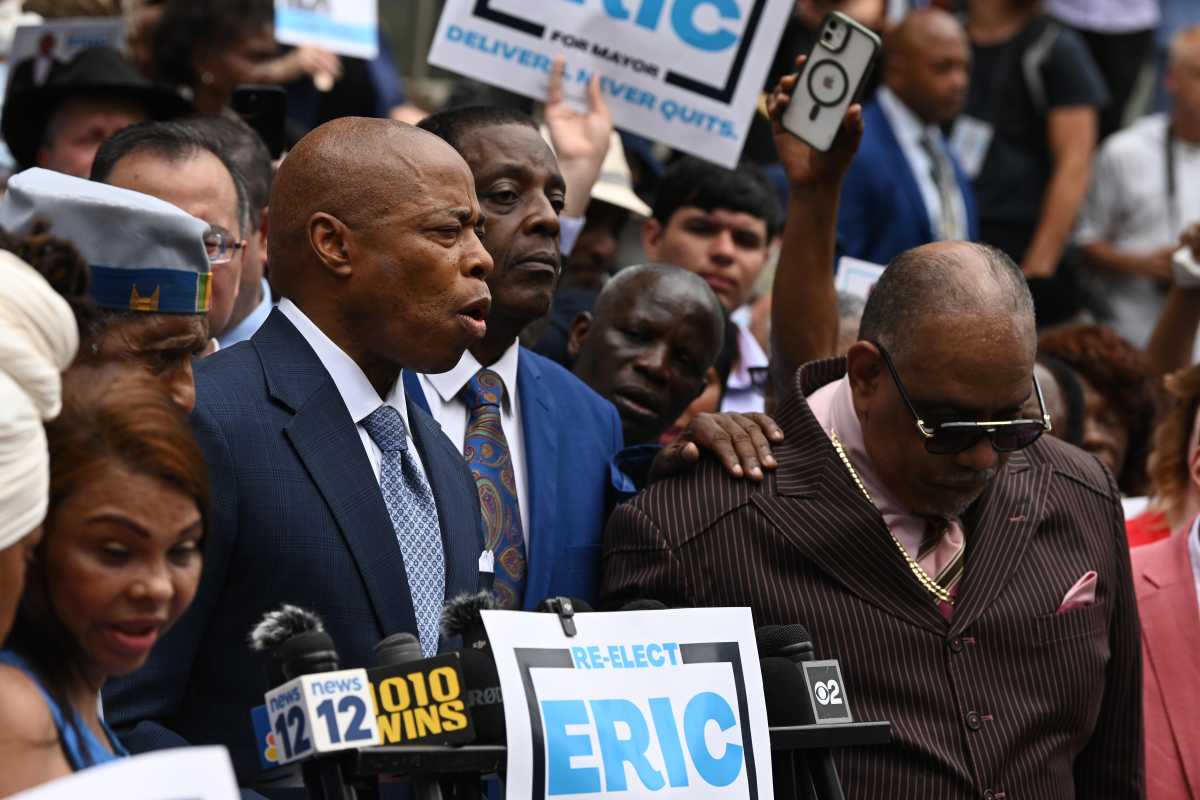PORT-AU-PRINCE, Haiti (AP) _ A political newcomer who was the chosen successor of Haiti’s previous elected leader easily won a presidential election redo against 26 rivals, according to preliminary results announced late Monday that gave Jovenel Moise a whopping 55.6 percent of the votes.
Moise was the leading vote-getter in first-round presidential balloting last year and appeared headed for a runoff. But that second round of balloting was repeatedly derailed amid fraud allegations and the official results were annulled after a Haitian commission called for the election to start over from scratch.
This time no runoff will apparently be needed because Moise, an agricultural entrepreneur and candidate of former President Michel Martelly’s Tet Kale party, got over 50 percent in the Nov. 20 balloting and also led his nearest competitor by well over 25 percentage points. Either result was enough to win under Haiti’s election rules.
The final count will be turned over to Haiti’s electoral tribunal, where political parties can dispute the results before winners are certified Dec. 29. The recent balloting also completed Parliament as voters picked a third of the Senate and the 25 remaining members of the Chamber of Deputies.
Shortly after the preliminary results were finally issued by Provisional Electoral Council leaders after hours of delay Monday, Moise was surrounded by jubilant, cheering supporters at a Petionville hotel. With his wife, Martine, at his side, he thanked Haiti’s citizens and all his political competitors in the deeply polarized country.
“It’s together we will change Haiti,” said Moise, who was tapped by Martelly to be his successor.
The election redo was needed to restore constitutional order in Haiti, which has been led by a provisional government for nearly a year because Martelly’s mandate expired before elections could be completed.
Second-place candidate Jude Celestin of the Lapeh political party had 19.5 percent in the preliminary count. He led an opposition alliance and boycotted campaigning for a runoff after coming in second to Moise in last year’s scrapped results.
The closest challengers after that were Moise Jean Charles, a former senator who had 11 percent of the vote, and the leader of the Lavalas Family party, Marysse Narcisse, with 8.9 percent.
Though his political enemies tried to discredit him as a puppet of Martelly, Moise campaigned vigorously and his support appeared to span the political spectrum among the sliver of Haitians who cast votes. Turnout was roughly 21 percent during the Nov. 20 vote.
Before the preliminary results were announced, Justice Minister Camille Edouard Junior said authorities were on “high alert” to ensure security in Haiti, where riots have sometimes greeted the announcement of election tallies.
But before results were even released late Monday, flaming street barricades were set up in a section of Port-au-Prince and some car windows were smashed by supporters of the Lavalas Family party, which was founded by twice-elected, twice ousted ex-President Jean-Bertrand Aristide.
For days, Lavalas partisans have insisted that only “massive fraud” would keep Narcisse from the presidency and they have repeatedly demonstrated in the streets of Port-au-Prince despite a decree saying there could be no demonstrations until after the results were issued. Monday was no different as Lavalas partisans again marched through a patchwork of downtown slums where there’s a well-worn street protest circuit.
“We will never accept Jovenel! It is all being manipulated,” said Rony Jean-Pierre, one of a few thousand demonstrators.
Pouchon Jean-Louis, a laborer in the Solino slum, watched the latest Lavalas rally snake past his family’s concrete shack and sucked his teeth in frustration.
“These last elections seemed to go well and now these people are screaming fraud again. I want a new Haiti. If Jovenel wins then that is the will of the people,” Jean-Louis said by a burned car.
After the preliminary results were reported late Monday, gunshots rang out in a number of districts either in celebration or warning.
A group of seven senators from the Lavalas party and sympathetic factions denounced what it believed were excessive irregularities during the Nov. 20 vote. In a letter sent to the CEP, the senators said there were numerous complaints of voters unable to cast ballots due to the relocation of some polling centers among other reasons.
Last week, Celestin wrote to the electoral council complaining about unsigned voter lists in polling centers that could “irreparably damage the integrity and reliability of the entire process.’’
Robert Maguire, a Haiti expert who is an international affairs professor at George Washington University, urged Haitian electoral authorities to respond “quickly, clearly and fairly’’ to those contesting the result and for losing candidates to accept transparent and honest results.
“Spoilers — with or without guns — still lurk in the shadows,” Maguire said.
Prior to running as the candidate for the Tet Kale faction, Moise was a little-known businessman who set up a banana plantation in Haiti’s north andáfounded a public-private project called Agritrans to successfully export the fruit to Europe. His campaign nickname is banana man.’’
Moise served asásecretary general of the chamber of commerce in northern Haiti and his first business was an auto parts company in the Port-de-Paix commune. He also distributed drinkingáwater in northern towns and his campaign literature said he started a project to bring solar and wind power to 10 communities.á As president, he vows to improve education and create jobs.



























